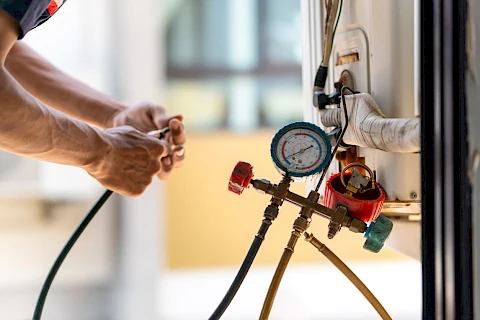
Seniors and their caregivers must prioritize winter safety as temperatures drop, especially preventing carbon monoxide poisoning. The dry, cold air increases the risks of home fires and CO hazards. It's essential to take measures to understand and mitigate these dangers. We share ways to effectively navigate these winter risks to keep your home safe.
Learning the Risks
Winter increases the need for heating, which can lead to more fire hazards. Common causes of winter fires include space heaters, fireplaces, and overloaded electrical circuits. Carbon monoxide—a deadly, odorless gas—can come from faulty furnaces, gas stoves, and fireplaces. Be aware of these risks to protect yourself and your loved ones.
Proper Use and Maintenance of Heating Equipment
Heating equipment is a primary source of home fires in the winter. To use these devices safely, follow these guidelines:
- Place space heaters at least three feet away from flammable items like furniture or curtains. Always turn them off before leaving the room or going to sleep.
- Avoid chimney fires by regularly cleaning the fireplace. A screen can help catch any sparks, and someone should always be near the fireplace while it's in use.
- Regular maintenance of your furnace and heating system is crucial. Have a professional inspect them annually to ensure they are working safely.
- Electric blankets provide warmth and comfort, but you should use them carefully. Avoid tucking in the edges or placing anything on top of them. Regularly check for wear and tear; never use an electric blanket with a heating pad.
Installing and Testing Detectors
Smoke and CO detectors are beneficial in preventing carbon monoxide poisoning. Here's how to ensure they're effective:
- Smoke detectors should be placed in every bedroom and on every floor. In contrast, CO detectors are best placed near sleeping areas and in rooms with fuel-burning appliances.
- Follow the manufacturer's instructions for proper placement and installation. They should be on the ceiling or high on the wall.
- Test detectors monthly and replace batteries at least twice per year. A good rule of thumb is to change them when you adjust your clocks for daylight saving time.
Developing an Emergency Plan
Preparation can save lives in case of an emergency. Create a fire escape plan that considers the specific needs of seniors:
- Plan at least two ways out of every room, and ensure that windows and doors are easy to open.
- Conduct regular drills to practice the escape plan. It helps everyone stay calm and act quickly in an emergency.
- Ensure everyone knows how to call 911 and has access to a phone. Keep a list of emergency contacts handy.
Additional Safety Tips
Beyond the basics, there are extra precautions you can take to enhance safety:
- Keep hallways and exits clear of clutter to ensure a quick exit.
- Store flammable materials like cleaning supplies and gasoline in safe, ventilated areas.
- Ensure adequate ventilation during cold months, especially using gas appliances or generators.
Contact Senior Helpers Clearwater for Assistance
Ensuring winter safety requires a proactive and vigilant approach. Follow our tips to help prevent carbon monoxide poisoning and significantly reduce the risks of fires.
For personalized assistance or more information, contact us at Senior Helpers Clearwater. We serve Safety Harbor, Clearwater Beaches, Dunedin, Pinellas Park, and Largo, and we're here to help you stay secure this winter.